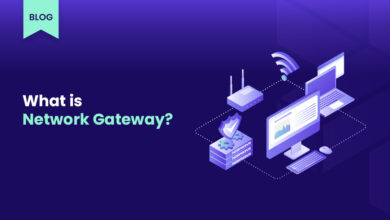Why Firewalls Are Important for Your Online Safety

Table of Contents
Firewalls are crucial for protecting your computer and network from harmful online threats. A firewall acts like a guard, deciding which information can enter or leave your system based on rules set by the network owner. In simple terms, firewalls are the safety gate between your private network and the internet, helping to block dangerous traffic from getting in.
The main job of firewalls is to keep your data safe while letting useful, safe information pass through. Without firewalls, your system could be exposed to viruses, hackers, and other risks. So, understanding firewalls is essential for anyone who uses the internet regularly and wants to protect their personal information.
What Are Firewalls and Why Do You Need Them

A firewall is a tool that helps protect your computer or network by deciding what information can enter or leave based on security rules. It acts as a barrier between your private network and the internet. Just like a security guard at the entrance of a building, firewalls only allow safe and approved data to pass through.
You need a firewall because the internet can be a dangerous place. Without one, your computer could be exposed to harmful things like viruses, hackers, and other online threats. Firewalls help prevent these dangers by blocking anything suspicious. They ensure that only trusted data gets in, keeping your system safe and your information private.
How Firewalls Protect Your Network From Cyber Attacks
Firewalls act like a shield for your computer or network. They stop harmful attacks like hacking or malicious software from entering. By setting rules on what can come in and go out, firewalls make sure dangerous data doesn’t get through.
One of the ways firewalls protect your system is by inspecting incoming traffic. If the traffic is harmful, like from a hacker or virus, the firewall blocks it. It only lets safe information, like emails or websites, come through. This helps prevent attacks and keeps your data secure from cybercriminals.
The Different Types of Firewalls: Which One Is Right for You

There are several types of firewalls, each designed for different needs. The most common types are packet filtering firewalls, stateful inspection firewalls, and proxy firewalls. Understanding these types helps you pick the one that best protects your network.
- Packet Filtering Firewalls: These firewalls check data packets that try to enter your network and block harmful ones.
- Stateful Inspection Firewalls: These look at the traffic and check if it’s part of a valid, ongoing connection.
- Proxy Firewalls: These firewalls act as middlemen, hiding your system from the internet and ensuring safe data flows through.
Each firewall type has its strengths, and choosing the right one depends on the level of security you need.
How Firewalls Keep Your Personal Information Safe Online
Firewalls don’t just stop harmful data, they also keep your personal information secure. When you use the internet, your personal details, such as passwords or credit card numbers, can be at risk. Firewalls block hackers who might try to steal these details.
By monitoring and controlling the traffic that comes to and from your device, firewalls make sure that only safe information reaches you. This is especially important when shopping online or using social media. Without firewalls, your private information could easily fall into the wrong hands.
Understanding How Firewalls Work to Block Harmful Traffic

Firewalls use specific rules to filter and monitor data traffic. They are like the gates of a fortress, allowing good data in while keeping bad data out. When a suspicious signal tries to enter, the firewall inspects it carefully and, if it’s dangerous, blocks it.
Firewalls don’t just block harmful content; they also monitor ongoing connections. This way, even if a hacker tries to sneak in during an active connection, the firewall will notice and stop them. It ensures that no malicious data gets inside your system, protecting your information in real-time.
Conclusion
In conclusion, firewalls are an essential part of keeping your personal and business information safe online. They act as a barrier, stopping dangerous traffic and allowing only safe data to pass through. Without firewalls, your system could be vulnerable to hackers, viruses, and other online threats. It’s important to use firewalls on all your devices to protect your privacy and keep your information secure.
Remember, firewalls alone won’t protect you from everything online. It’s best to use them along with other security tools, like antivirus software, strong passwords, and safe browsing habits. By staying informed and using the right tools, you can enjoy a safer online experience and keep your data protected from threats.
FAQs
Q: What is a firewall?
A: A firewall is a security tool that helps protect your computer by blocking harmful data and letting safe data pass through. It acts as a barrier between your system and the internet.
Q: Do I need a firewall on my phone?
A: Yes, firewalls are important on all devices, including phones. They help protect your personal information from hackers and other online threats.
Q: Can a firewall stop all viruses?
A: A firewall can block harmful traffic, but it doesn’t catch all viruses. It’s best to use a firewall along with antivirus software for better protection.
Q: Is it hard to set up a firewall?
A: No, setting up a firewall is easy. Many routers come with built-in firewalls, and you just need to enable them in the settings.
Q: Do firewalls slow down my internet?
A: Modern firewalls are designed not to slow down your internet. They run quietly in the background and don’t affect your browsing speed.




